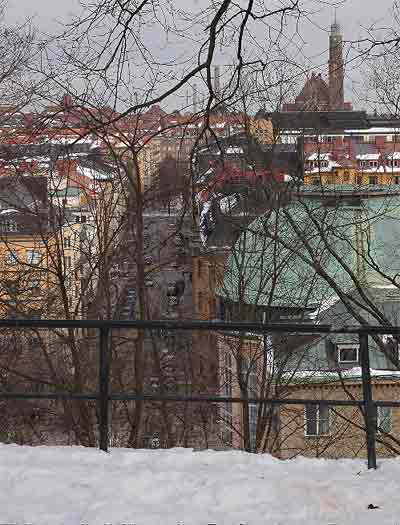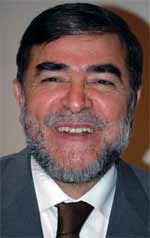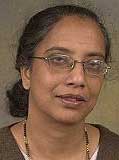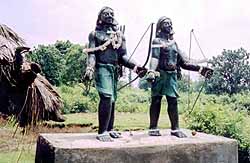SWEDISH
SOUTH ASIAN STUDIES NETWORK
 Newsletter 50:
Newsletter 50:
18 March 2005
| SASNET News | |
| Cultural activities | |
SASNET News:
• SASNET organises post-tsunami
seminar in Lund
In collaboration with Lund University’s Centre for East
and South-East Asian Studies (ACE), and AGESI
(a Lund University network dealing with global equity and sustainability
issues) SASNET organises a public seminar on ”Beyond Control –
Risk and Learning after the Tsunami” on Monday 11 April 2005, 13.00–21.00.
The seminar will be inaugurated by the Vice-Chancellor of Lund University,
Prof. Göran Bexell, to be followed by afternoon lectures focusing
on different aspects of risk and disaster management. Among the lecturers
are Dr. Simron Jit Singh from the University of Vienna (who defended his
dissertation on trade relations in the Nicobar Islands, at Lund University
in December 2003), and Dr Camilla Orjuela, Dept. of Peace and Development
Research, Göteborg University. The seminar rounds up with a panel
discussion with researchers, a student and a journalist with experiences
of the tsunami catastrophe, in an evening session. Prof. Staffan Lindberg,
SASNET, will be the moderator. Venue: Edens hörsal, Paradisgatan
5, Lund.
More information with full programme (only in Swedish).
• SASNET meetings
with South Asian ambassadors
in Stockholm
On 16–17 March 2005 SASNET’s Staffan Lindberg and Lars Eklund
travelled to Stockholm in order to network with the recently appointed
new ambassadors to Sweden from India (Mrs. Deepa Gopalan Wadhwa), Sri
Lanka (Mr N. Sikkander) and Bangladesh (Mr. Sabihuddin Ahmed), in separate
meetings. Both Ms. Wadhwa and Mr. Sikkander assumed duties as ambassadors
to Sweden during the month of February 2005, whereas Mr. Ahmed arrived
a few months earlier.
Discussions were held on the prospects of increasing academic exchange
in the fields of research and education between universities in Sweden
and their respective country, and the role SASNET might have in facilitating
these efforts. More information.
• Applications for the next round
of SASNET planning grants
are now invited. Closing date for applications is
15 June, 2005. More information.
• Swedish Program for Information
and Communication Technology in Developing Regions inaugurated
 SPIDER
is officially inaugurated on Friday 18 March 2005, 15.00–19.00.
SPIDER, the Swedish Program for Information and
Communication Technology in Developing Regions is supported by Sida
and hosted by the Royal Institute of Technology, KTH, in Kista, Stockholm.
Its main task is to pull together all ICT resources, related to sustainable
development, in Sweden, and make them available to developing countries.
The Centre acts as a meeting place and a catalyst for ICT experts and
entrepreneurs, who are interested in strengthening their commitment to
the UN millennium Development Goals.
SPIDER
is officially inaugurated on Friday 18 March 2005, 15.00–19.00.
SPIDER, the Swedish Program for Information and
Communication Technology in Developing Regions is supported by Sida
and hosted by the Royal Institute of Technology, KTH, in Kista, Stockholm.
Its main task is to pull together all ICT resources, related to sustainable
development, in Sweden, and make them available to developing countries.
The Centre acts as a meeting place and a catalyst for ICT experts and
entrepreneurs, who are interested in strengthening their commitment to
the UN millennium Development Goals.
SPIDER has already given financial support to more than ten ICT projects
at various Swedish Universities with a purpose to stimulate cooperation
with developing countries, including Sri Lanka. It has also taken an initiative
to launch a new International Masters Programme focused on ICT for development,
to which several Swedish universities will contribute with specialized
course modules. The Masters Programme is planned to start the program
in autumn 2005. A short course in the same thematic area is also planned
for the summer 2005. Venue for the inauguration ceremony: Main Auditorium,
Entrance Floor, School of ICT, KTH, Isafjordsgatan 39, Kista.
• AREU announces position
as Deputy Director in Kabul
The Afghanistan Research and
Evaluation Unit (AREU) announces a vacant position as Deputy Director.
AREU is the only independent policy research organization headquartered
in Afghanistan, currently employing about 60 national staff and 13 international
staff, as well as a number of shorter-term international consultants.
The organisation is partly funded by the Swedish government. The Deputy
Director for Research heads AREU’s Research Department and oversees
the overall strategic direction of AREU’s research and its implementation.
Candidates for the position should have relevant academic qualifications
(including at least a Masters degree), a record of authorship of research
publications, and at least eight years of relevant work experience, including
at least three years of experience in the field of international development
(preferably with some experience working in an Islamic context). Closing
date for applications is 31 March 2005.

•
Afghanistan cabinet ministers at Stockholm conference on Islamism
The two-day conference on the ”Emergence of Militant Islamism and
its Relevance for Afghanistan”, arranged by the Swedish Committee
for Afghanistan (SCA) in Stockholm 10–11 March 2005, was attended
by more than 200 people. The key speakers included internationally renowned
experts such as Ahmad Moussalli, Professor in Political Studies (specialised
in Islamic political history) at the American University, Beirut, Lebanon;
and the Pakistani journalist Ahmed Rashid. Two cabinet ministers from
the new Afghanistan government were also invited as key speakers, the
Deputy Minister of Foreign Affairs, Haider Reza (photo to the left); and
the Deputy Minister of Interior, Shahmahmood Miakhel. Read
a conference report by Lars Eklund.
•
Huddinge Seminar on traditional Bengali Theatre, Culture and Music
A public seminar on ”Traditional Bengali Theatre, Culture
and Music” was held in Huddinge, south of Stockholm, on Thursday
10 March 2005. Ten folk musicians, dancers and singers from Purulia, in
the western part of the Indian state of West Bengal, on tour to Sweden,
took part in the seminar that was organised by Associate Professor Christina
Nygren, Dept. of Musicology and Theatre Studies,
Stockholm University. Dr. Mirja Juntunen from the Section
for Indology, Department of Oriental Languages, Stockholm University,
was also involved in the seminar, reading out translations into Swedish
of the songs performed by the Purulia artists. The following day the group
gave a performance called ”Bengali Night” featuring
suggestive so-called jhumu music and nachni dance (by
Shonda Rani), at Södra Teatern in Stockholm. Read
Lars Eklund’s report from the Huddinge seminar.
• Working papers from Indian Institute
for Studies in Industrial Development free for researchers to download
The Indian Institute for Studies in Industrial Development (ISID),
a national-level public funded research and educational institution affiliated
to the Indian Council of Social Science Research has taken a lead in making
available its working papers on the Internet so that interested scholars
can download them for free. The research deals with industrial development,
with special emphasis on the problems of India and its relationship with
other countries of the world. Go
for the Working papers.
• Lund workshop on
Sikh and Punjab Studies
A workshop on Sikh and Punjab Studies is held at Lund
University on Saturday 19 March 2005, 9.15–18.00. The workshop,
arranged by the University’s Dept. of History and Anthropology
of Religions in cooperation with the Centre for Sikh and Punjab
Studies at University of California, Santa Barbara, will bring together
a group of scholars from the USA and Europe working in the interdisciplinary
field of Sikh and Punjab studies to discuss various aspects of the
religion, culture and history of Sikhism and the Punjab. It will
be divided into five panel sessions treating the Sikh history, migration
to Europe, the American Sikhs, as well as topics related to identity,
ritual and cultural performances. Venue: Centre for Theology and
Religious Studies, Lund University, Allhelgona Kyrkogata 8, Room
218. Final programme (as a pdf-file)
• Lund lecture on
Contemporary Trends in South Indian Popular Religiosity
Dr. Kerstin Neumann from Tamil Theological Seminary, Madurai,
India, holds a public lecture at Lund University on Friday 1 April
2005, 14.15–16.00. She will lecture on ”Contemporary
Trends in South Indian Popular Religiosity”. Venue: Centre
for Theology and Religious Studies, room 438, Allhelgona Kyrkogata,
Lund. Kerstin Neumann is presently on a visit to Scandinavia along
with Dr. David Rajendran from the same institute in Madurai. In
Denmark they held a lecture on 30 March at Copenhagen University,
and on Thursday 31 March, 13–17, at Århus University
(Center for Multireligiøse Studier), on ”The Religious
Encounter between Hinduism and Christianity and Interreligious Dialogue
in an Indian Setting”. More
information.
• CPAS lecture on
Drugs smuggling and Nation building in Central Asia
Research Director Svante Cornell from the Program
for Contemporary Silk Road Studies, Uppsala University, lectures
on ”Drugs smuggling and Nation building in Central Asia”
at Stockholm University, Wednesday 6 April 2004, 15–17.
The lecture is arranged by the Center for Pacific Asia Studies (CPAS).
Venue: Hall B/CPAS, Stockholm University, Kräftriket 4 B, Stockholm.
• Oslo lecture on
Conflict and Institutional Change in India
Professor Neera Chandoke from the University of Delhi,
India, holds a lecture at Oslo University on Wednesday 6 April 2005,
14.15–16.00. Chandoke, who is a political scientist, will
lecture on ”Conflict and Institutional Change in India”.
She is Director for the Developing Countries Research Centre at
the University of Delhi. It is an arrangement by Asianettverket.
Venue: Senter for utvikling og miljø (SUM), Sognsveien 68,
Oslo. More
information (as a pdf-file).
• Stockholm seminar
on ”Afghanistan – on the Road to Democracy?
A seminar on ”Afghanistan – on the Road
to Democracy?” is held in Stockholm on Monday 11 April
2005, 19.00. Barnett Rubin, Senior Fellow at the Center on International
Cooperation, New York University, USA, will lecture on ”Afghanistan
– Drugs Nest or Democracy?”, and the Zimbabwean Professor
Reginald Austin (during 1998–2003 Director of the Electoral
Unit at the International Institute of Democracy and Electoral Assistance,
IDEA in Stockholm) will lecture on ”The First Election in
Afghanistan”. The seminar is organised by the Development
Forum (Föreningen för Utvecklingsfrågor) in collaboration
with the Swedish Committee for Afghanistan, Olof Palmes Internationella
Centrum, IDEA and ABF. Venue: ABF-huset, Sveavägen 41, Stockholm.
• Uppsala lectures
by Dr. Vinita Damodaran
 Dr.
Vinita Damodaran gives two guest lectures at Uppsala University
on Monday 11 April and Friday 15 April 2005, both times 14.15–16.00.
The lectures are held within Dept. of History’s
Master's level course ”Histories of Colonial Experience”.
Vinita Damodaran is Director of the Centre for World Environmental
History, University of Sussex, England, and has published widely
on issues of environmental history of modern India. The first lecture
is titled ”Transformations of nature and social relations”,
and the second ”Globalisation and European perceptions
of India from the eighteenth century”. Venue: Dept. of
History, Engelska Parken, room 2-0023. If you wish to participate,
please contact Dr.
Gunnel Cederlöf in advance.
Dr.
Vinita Damodaran gives two guest lectures at Uppsala University
on Monday 11 April and Friday 15 April 2005, both times 14.15–16.00.
The lectures are held within Dept. of History’s
Master's level course ”Histories of Colonial Experience”.
Vinita Damodaran is Director of the Centre for World Environmental
History, University of Sussex, England, and has published widely
on issues of environmental history of modern India. The first lecture
is titled ”Transformations of nature and social relations”,
and the second ”Globalisation and European perceptions
of India from the eighteenth century”. Venue: Dept. of
History, Engelska Parken, room 2-0023. If you wish to participate,
please contact Dr.
Gunnel Cederlöf in advance.
• Dr Vinita Damodaran also gives an open lecture
on ”Global Environmental History: A Special Focus on South
Asia” at Uppsala University on Tuesday 12
April 2005, 10.15–12.00. The lecture is jointly organised
by the Seminar for Development Studies and CEMUS (the Centre
för Environment and Development Studies). Venue: Cemus
lecture hall (Celsiushuset, Svartbäcksgatan 9), Uppsala. Dr
Damodaran’s work ranges from the social and political history
of Bihar to the environmental history of South Asia.
• Sussex conference in commemoration
of of the Santal Rebellion
 The
University of Sussex organizes a conference on ”Reinterpreting Adivasi
(Indigenous peoples) Movements in South Asia”, 21–23 March
2005. The conference is held in recognition of the 150th anniversary of
the Santal Rebellion in the present state of Jharkhand in eastern India.
It aims at allowing an international reassessment of the role of tribal
movements in the histories of colonial and postcolonial South Asia, and
enable close examination of the construction of indigeneity in many discourses,
from the nation-state to its historiography, and from Hindutva to sub-nationalist
politics. Venue: Graduate Centre in the School of Humanities, and Graduate
Centre in the School of Social Sciences and Cultural Studies, University
of Sussex, UK.
The
University of Sussex organizes a conference on ”Reinterpreting Adivasi
(Indigenous peoples) Movements in South Asia”, 21–23 March
2005. The conference is held in recognition of the 150th anniversary of
the Santal Rebellion in the present state of Jharkhand in eastern India.
It aims at allowing an international reassessment of the role of tribal
movements in the histories of colonial and postcolonial South Asia, and
enable close examination of the construction of indigeneity in many discourses,
from the nation-state to its historiography, and from Hindutva to sub-nationalist
politics. Venue: Graduate Centre in the School of Humanities, and Graduate
Centre in the School of Social Sciences and Cultural Studies, University
of Sussex, UK.
• British Association for South Asian
Studies meet at Leeds
The British Association for South Asian Studies (BASAS) organises
its 2005 Annual Conference at the University of Leeds, UK, 30 March–1
April 2005. BASAS is the largest UK academic association for the study
of India, Pakistan, Bangladesh, Sri Lanka, Nepal, Bhutan, Maldives and
the South Asian Diaspora. Some of the panels accepted so far: ”Nepali
Identity in the Diaspora”, ”It's shining for some:
an exploration of India's post-liberalisation middle classes”,
”Religion and Politics in Contemporary Pakistan”,
and ”Maritime archaeology and ethnographic approaches in India”.
Professor Staffan Lindberg, Director of SASNET, will take part in the
conference. More
information.
• Uppsala conference on Violent Conflict
and Democracy Promotion – Risks and Opportunities
The Collegium for Development Studies at Uppsala University
arranges a conference on ”Violent Conflict and Democracy
Promotion – Risks and Opportunities”,
7–8 April 2005. The conference, that is held in collaboration with
Sida's Division for Democratic Governance, deals with the development
in different ongoing violent conflicts or fragile post-conflicts around
the World, including Afghanistan. The questions of what needs to happen
before formal democratic political processes become useful, and whether
democracy assistance can help build and promote conflict preventive political
institutions and processes, will be discussed. Among the participants
are Marina Ottaway from the Carnegie Endowment for International Peace,
Washington, USA. Venue: Missionskyrkan, S:t Olofsgatan 40, Uppsala. More
information.
• Lillehammer conference on Indo-Scandinavian
collaboration within higher education
The International Council for Open and Distance Education (ICDE)/Network
Scandinavia organises a conference in Lillehammer 25–26 April 2005.
The conference is titled ”From the local to the global – Collaboration
within higher education between India and the Scandinavian Countries”.
A few selected institutions from both India and the Scandinavian
countries have been invited to discuss topics such as student exchange,
study program development and research, and development collaboration
within the use of ICT and New Media in education. ICDE is approved and
authorized by the United Nations (UNESCO) to serve as the Global Institutional
Membership Organization in Online, Flexible and Blended Learning, including
e-learning and distance education.
 •
Contemporary Dramas of South Asia theme for NASA conference in Aarhus
•
Contemporary Dramas of South Asia theme for NASA conference in Aarhus
After a gap of four years the Nordic Association for South Asian
Studies, NASA, arranges a conference 3–5 June 2005 in Aarhus, Denmark.
The theme for the conference (that normally should be a biannual
event) will be ”Contemporary Dramas of South Asia: Economic, Social,
Political and Cultural Changes/Upheavals”, and it is organised by
the University of Aarhus. The conference includes workshops on
• Globalization, economic changes and socio-political
upheavals; • States and minorities in South Asia;
• Imagining Nations: middle classes and processes of nation
formation in South Asia; • A South Asian security conundrum?;
• Anti-oppressive movements; • Secularism in
South Asia; and • Health, Globalization and Marginalization
in South Asia. Keynote speakers are Dr. Christophe Jaffrelot, director
of the Centre d’Etudes et Recherches Internationales (CERI), Paris;
Professor Zoya Hasan, Centre for Political Studies, Jawarharlal Nehru
University, New Delhi; Professor Martin Sökefeld, Dept. of Anthropology,
Hamburg University; and Professor Isabelle Clark-Deces, Department of
Anthropology, Princeton University. More
information on the NASA conference.
• 11th Himalayan Languages Symposium
to be held in Bangkok
The 11th Himalayan Languages Symposium will be hosted by the
Department of Linguistics, Faculty of Arts, Chulalongkorn University,
Bangkok, Thailand, on 6–9 December 2005. The Himalayan Languages
Symposia (HLS) brings together scholars working on languages and language
communities of the greater Himalayan region, including north-western and
north-eastern India, Nepal, Bhutan, northern Burma, the Tibetan Plateau,
southern China, and Nuristan, Baltistan and the Burushaski-speaking area
in the west. The previous HLS was held in Thimphu, Bhutan, in December
2004.
• First circular for 19th European Conference
of Modern South Asian Studies
The 19th European Conference of Modern South Asian Studies (ECMSAS)
will be held at Leiden University, the Netherlands, 27–30 June 2006.
Panel suggestions are now invited, and should be given before 1 June 2005.
Read the first announcement for the conference
(as a pdf-file)
• Other conferences connected to South Asian
studies arranged all over the World
See SASNET’s page, http://www.sasnet.lu.se/conferences.html#conf
• Mynta on tour through Sweden and Denmark
Mynta, the Indo-Swedish group including the Indian tabla master
Fazal Qureshi (brother of Zakir Hussain) once again tours Sweden and Denmark
during March 2005. The group offers an exciting mixture of Indian and
African music mixed with Arabian clang, jazz and Swedish folk songs. The
itinerary ends up with a concert in Göteborg on Friday 18 March (Jazzklubb
Nefertiti); and in Örebro on Saturday 19 March (Konserthuset). More
information on Mynta.
Best regards,
Staffan Lindberg Lars Eklund
SASNET/ Swedish South Asian Studies Network
SASNET is a national network for
research, education, and information about South Asia, based at Lund University.
The aim is to encourage and promote an open and dynamic networking process,
in which Swedish researchers co-operate with researchers in South Asia and globally.
The network is open to all sciences. Priority is given to co-operation between
disciplines and across faculties, as well as institutions in the Nordic countries
and in South Asia. The basic idea is that South Asian studies will be most fruitfully
pursued in co-operation between researchers, working in different institutions
with a solid base in their mother disciplines.
The network is financed by Sida (Swedish International
Development Cooperation Agency) and by Lund
University.
Postal address: SASNET – Swedish South Asian Studies Network, Scheelevägen 15 D, S-223 63 Lund, Sweden
Visiting address: Ideon Research Park, House Alfa 1 (first floor, room no. 2042), in the premises of the Centre for East and South East Asian Studies at Lund University (ACE).
Phone: + 46 46 222 73 40
Fax: + 46 46 222 30 41
E-mail: sasnet@sasnet.lu.se
Web site: http://www.sasnet.lu.se
Staff: Staffan Lindberg, director/co-ordinator & Lars Eklund, webmaster/deputy director
SASNET - Swedish South Asian Studies Network/Lund
University
Address: Scheelevägen 15 D, SE-223 70 Lund, Sweden
Phone: +46 46 222 73 40
Webmaster: Lars Eklund
Last updated
2010-11-30
